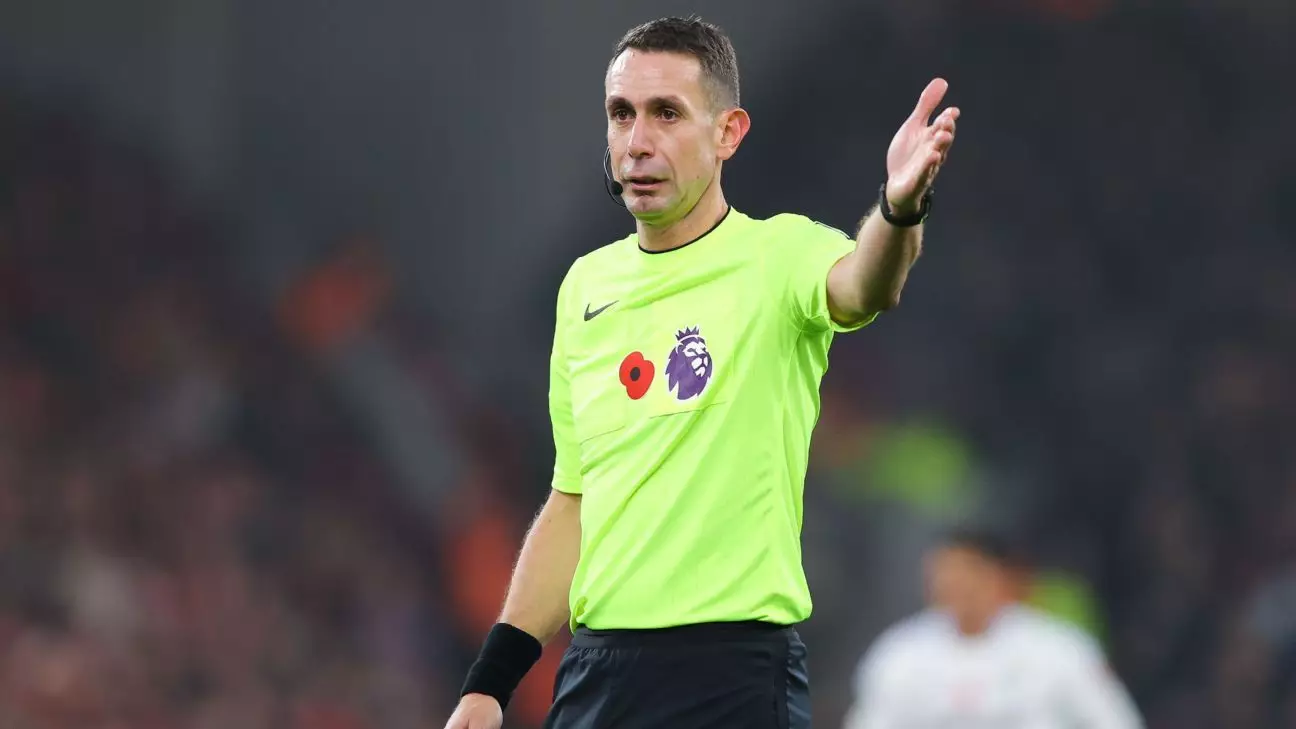The recent incident involving David Coote, a referee suspended by PGMOL (Professional Game Match Officials Limited), raises significant concerns about integrity within English football’s officiating frameworks. As reported, a video surfaced allegedly depicting Coote engaging in questionable behavior while under UEFA responsibilities. This has led to considerable ramifications not only for Coote’s career but also regarding the broader implications for the reputation of officiating bodies and the football community.
The catalyst for this controversy was a prior video that surfaced on social media platforms, revealing Coote making derogatory comments about Liverpool FC and their former manager, Jürgen Klopp. Following this revelation, PGMOL took commendable yet necessary action by suspending Coote as they began an internal investigation. The immediate response highlighted the importance of maintaining professionalism and accountability, especially in a role that significantly influences match outcomes and player welfare.
The second video, allegedly showing Coote in a compromising situation, underscores the challenge of maintaining decorum and ethics in high-stress environments such as international football. PGMOL’s representative expressed that the organization is treating the matter with the utmost seriousness, indicating a commitment to accountability and due process.
David Coote’s situation sends ripples across professional officiating circles. His role as a referee and as a support Video Assistant Referee (VAR) during significant matches places him in a spotlight that demands an exemplary standard of conduct. The released footage casts doubts not only on his judgment but also on the integrity of the officiating system as a whole. If referees, who are expected to uphold the game’s integrity, find themselves at the center of such allegations, it raises questions about the robustness of training and support systems designed to prepare them for the rigors of their positions.
The integrity of referees is paramount, especially in a competitive landscape where decisions can swing the outcomes of major games, impacting clubs, players, and fans alike. This incident could lead to increased scrutiny regarding the selection and monitoring of match officials, forcing PGMOL and UEFA to reevaluate their approaches to managing referees and ensuring that they lead by example.
The allegations against Coote serve as a stark reminder of the potential fragility of both personal and professional credibility in sports. Beyond the individual repercussions, this incident could ignite discussions about broader systemic issues including the mental health of officials, the pressures they face, and the support mechanisms in place to assist them.
Moreover, sponsors, media, and stakeholders in football may begin to rethink their relationships with officiating bodies that do not maintain rigorous standards. The consequences of such high-profile cases reach beyond the immediate problem; they can diminish public trust in the officiating process, leading to more significant fallout for leagues and organizations involved.
While the investigation unfolds, the Coote case stands as a critical juncture for English football, challenging governing bodies to reinforce ethical standards and ensuring the integrity of the sport remains intact. It is vital for PGMOL and UEFA to not only manage the immediate fallout but to also take proactive measures to prevent similar incidents from occurring in the future.

